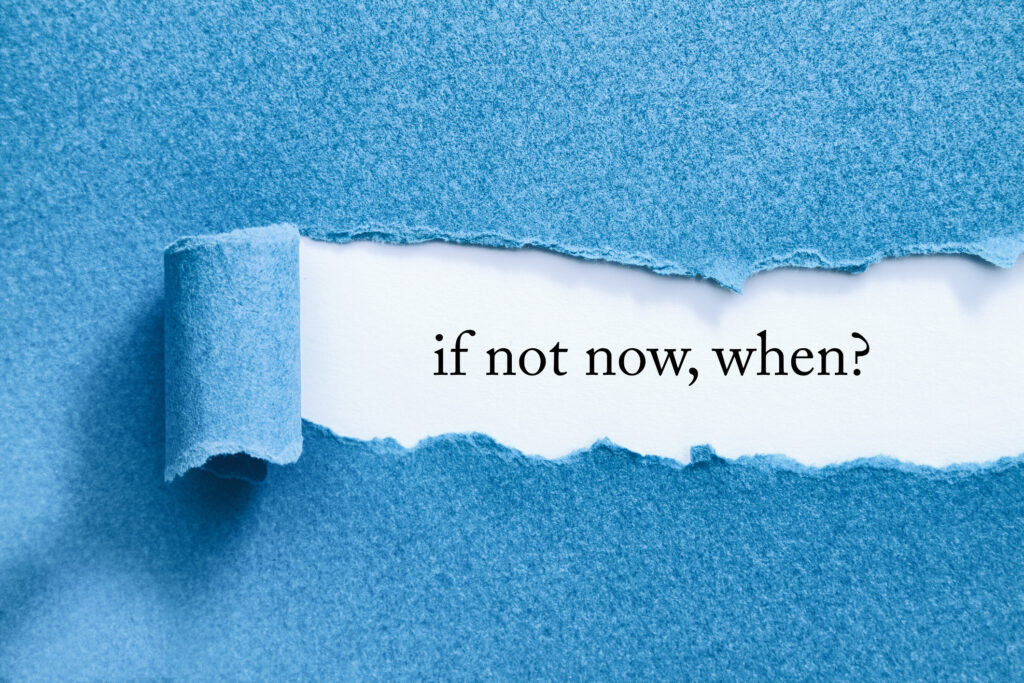Too Many People Know Nothing About Healthy Relationships.
Self-esteem is step one for building strong relationships.

You can be the most intelligent, successful, or prosperous person in the room, and I’ll bet you 25 cents you know very little about how to have a healthy relationship with yourself or anyone else. How do I know? I have worked with thousands of men and women in therapy for over 20 years, and I’ve seen it. Bright people with education and training who are superstars in their professional lives and at the toddler stage of development in self-care and interpersonal relationships. Like a cardiologist with heart disease smoking filter-less cigarettes and throwing down cheesy fries, they probably know they are in unhealthy relationships and could do better. Still, they choose not to do anything until that moment comes when they have no choice. Full disclaimer: I used to be the same way, but luckily, I had an older good friend tell me when I was in my early 20s that since I was having a hard time and had depression and anxiety, I would probably get worse as I got older and end up being pretty crazy. As I stood there, a voice in my head said, “Oh no, Becky, this isn’t how it will be. You’ll figure out what’s happening here and get yourself straightened out.” And so began my journey to healing.
For most human beings, change doesn’t happen that way. Only about 5 percent of the population gets sick of themselves and seeks change and actively seeks to heal and learn healthy behaviors, as I did. Unfortunately, the other 95 percent go along in life feeling comfortably uncomfortable for long periods, often forever. They will need a hammer to hit them on the head to create motivation to fix themselves. That hammer happens when your spouse looks at you and says, “You know what? I want a divorce.” Or, if you’re single, you mismanage your life to the point that you lose things you care about and have an emotional and mental breakdown and collapse or can’t get out of bed. It can and does happen. These moments are wake-up calls to do something to change your life, and people will do it or won’t. If they choose the dysfunctional status quo, they will lose their functional life as they knew it. People who don’t deal with emotional injuries will find it manifests into poor mental health and bodily disorders, often chronic pain. I wish people would become motivated to get healthy mentally, emotionally, and in their relationships before a breaking point is reached.
Codependence Recovery
The Pia Mellody (1) definition of codependence is a lack of self-care caused by toxic shame. Toxic shame is the belief that you are not good enough, defective, don’t fit in, or something is wrong with you. No human being is less than another, and we all are good enough for our purpose, whatever that is. The lie people tell themselves about not being good enough becomes an emotional disability that sabotages our lives. As a result, people in America are lonely, miserable, insecure, fearful, depressed, anxious, addicted, have low self-esteem, have zero or false confidence, have difficulty functioning, and you know what they’re doing? Living their lives miserably. They do little or nothing to meet their own needs, and their physical health is less than. They have no idea what healthy communication is, and personal growth is something others do. My message is that mental and emotional health must be managed like a business. People must learn to stay in the black, where they are content most of the time, where depressive episodes and stress are rare. Instead, most people I see are in the red, meaning they are overdrawn, worn out, depleted, and focused on other people’s needs but not their own. It has been the shock of my life to learn how many people live their lives this way.
This all happens because our families and culture are hard on us as children, expecting too much and asking us to conform to whatever their rules and goals are. Make good grades, act like a man, be a pretty woman, excel at sports and extracurricular activities, and follow your religion. The more conforming and restrictive a group is, the more it is an abusive relationship and the more toxic shame their children will have. The ones who strike their children take harming them to another level, injecting toxic shame into them as if it were a transfusion of self-hatred. This guarantees their child’s fate of feeling less than others but now adds a strong dose of anger. Children who are rigidly controlled end up suffering and confused, unable to have the freedom and flexibility to discover who they were meant to be. To cope with this dysfunctional reality, humans create personas or ways of being that are not authentic but are winning formulas to be accepted by others. Pleasers, caretakers, rescuers, perfectionists, and overachievers all fall into this category. Rebels are the ones who conclude that not only would they fail at anything they tried, but they have also learned firsthand they can’t count on people. Their persona is meant to keep people away.
I remember years ago going along with the family program and vying for applause from my family. Being who they wanted me to be and not being who I really was caused my depression and anxiety. I sold myself out to them, friends, and boyfriends, turning myself into whomever they all wanted me to be, like a chameleon. The other option is to be yourself and get criticized, so far too many opt into going along until that hammer I talked about comes down. The whole process of codependence recovery is to unlearn most of the rules, values, and beliefs you took on then that don’t resonate with who you are today. The idea is to find out who you are and to live true to that person. In the long run, what is truly sad is how many people feel guilty about now doing this work, the very work that is the only path to a life of peace and contentment.
You must step up and advocate for yourself and your own mental and emotional health if you want to make the most of your life. Pleasing others and valuing other’s comfort over your own is the way to suffering. Once you click over to this new belief and value that you and your self-care come first in your life, you will never want to return. When I did this years ago, my family told me they didn’t like “new Becky.” I responded, “If you don’t like new Becky, then you don’t like me. Old Becky was playing the role you wanted and expected her to play, and I will not do that anymore.” Our relationships were never the same, but I saw it as me escaping from the negative and moving to a friendlier, kinder, and more loving space.
Going against the grain of other’s expectations takes courage, but you will find that being true to yourself is more important. If our families had our best interests at heart, they would love and support us as we seek to know who we are and what makes us thrive. If they have their own best interests at heart, they will question and resist our growth.
The case for healthy self-esteem.
The point of this information is to show you what happens to people, why they’re unhappy, and what they need to do to become happy. It is a case for healthy self-esteem. In codependence recovery, you will practice having a healthy relationship with yourself. This is the first step to all good things mentally, emotionally, and in relationships. You cannot have strong relationships and social connections with anyone unless you are in a better place with yourself. Here is how healthy self-esteem sounds:
Because I was born and am a human being, I am valuable. My value is constant and is not gained through outside truths like how I look, perform, what I do, what I achieve, or any talent or gift I may have. No one can take it from me. I understand that all humans are imperfect and flawed, and that is by design. Despite that, I am good enough for whatever life has to offer. I don’t expect perfection from myself or anyone else and will practice self-compassion during good times and bad. I accept myself the way I am.
Taking on this new truth in your life is as important as anything. I created a mantra I often share with clients, “I am imperfect, flawed, weird, quirky, and perfectly designed. I accept and shake hands with myself just the way I am.” This truth should be shared with young people starting middle school at the latest. Many clients tell me they feel behind and aren’t where they hoped to be by a certain age. Once we all grasp that a timeline is acceptable so long as we are flexible with ourselves along the way. If I don’t reach my proposed goals, I have not failed. I just compassionately stay on my path and reach my goals organically. If I decide to quit, I kindly steer myself in a better direction. There is no failure, only life experiences that teach us more about who we are. If you beat yourself up, you are off track. If you treat yourself as you would your child, with kindness and understanding, you’re there.
What’s next after self-esteem?
Once you get your relationship with yourself where it needs to be, you must learn how to protect that person. Healthy boundaries and self-esteem are the most critical factors and the best way to have healthy friendships, intimate relationships, and a quality of life where you thrive rather than just survive. Boundaries are a human being’s security and protection system, and it works two ways … protecting yourself from being harmed by others and keeping yourself from causing harm to others. I have been practicing healthy boundaries for around 20 years, and I am so grateful that not only did I learn how to do it but that doing it has brought me so much peace. Along those lines, I love teaching people how to implement them into their lives, and watching the transformation it brings is as gratifying as it gets. I will write more about boundaries in an upcoming blog, but you can learn more about them now by reading Pia Mellody’s Facing Codependence, her workbook Breaking Free, and her second book, The Intimacy Factor. If you want a book that focuses on relationships, there is nothing better than Terry Real’s Fierce Intimacy, an audiobook that applies Mellody’s model to couples.
Going into recovery from codependence using Pia Mellody’s model is the best gift you could give yourself. Once you get started, you won’t go back.
(1) Learn more about Pia Mellody and her amazing model for Childhood Developmental Trauma at https://www.piamellody.com/
Becky Whetstone, Ph.D., is a licensed Marriage and Family Therapist in Arkansas and Texas* and is known as America’s Marriage Crisis Manager®. She is a former features writer and columnist for the San Antonio Express-News and has worked with thousands of couples to save their marriages. She can work with you, too, as a life coach. She is also co-host of the Call Your Mother Relationship Show on YouTube and has a private practice in Little Rock, Arkansas, as a life coach via Zoom. To contact her, check out www.DoctorBecky.com and www.MarriageCrisisManager.com. Don’t forget to follow her on Medium so you don’t miss a thing!
For licensure verification, find Becky Whetstone Cheairs.
If you enjoyed this, you might like this ….






